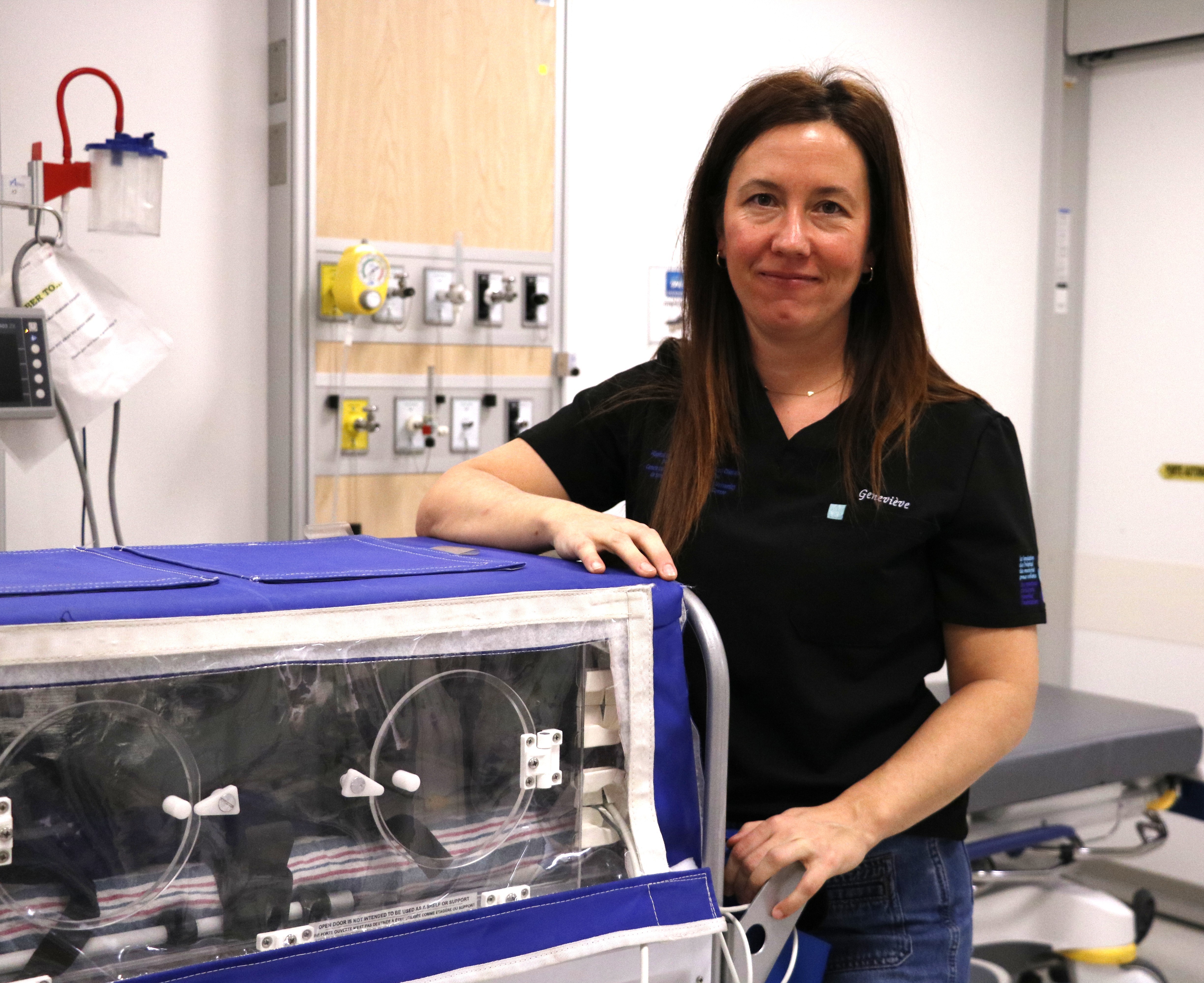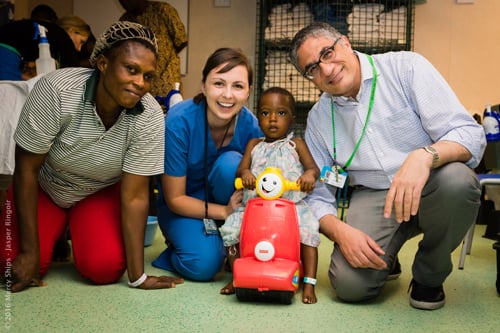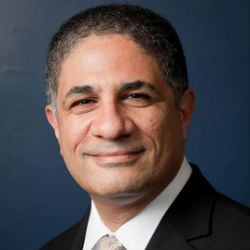
Celebrating Critical Care Transport Nurses at the MCH
18 February 2026
Rise in respiratory infections and measles outbreak: important infection prevention measures at the Montreal Children’s Hospital.
Read moreWelcome to the Montreal Children's Hospital

16 January 2017
My best friend’s wife has a routine of dropping off their daughter to school every morning with the same advice: make good decisions. I repeat those words over and over under my breath during the evaluation of many patients on the Ship. They are fragile. They are presenting late. The medical history is often difficult or impossible to obtain. Many suffer from poor nutrition, recurrent malaria, anemia, or all three. Many can continue to live with their disabilities for a long time, until one day they can’t. Should I operate? And if I do, should I perform the standard operation, or something abbreviated? How will their recovery be? Will they need follow-up? Make good decisions.
One of my patients is a little boy just over a year old. I will call him Dustin. He is not from Benin. His mother came from a neighboring country. Dustin is beautiful, joyful, playful, and happy. He runs around everywhere. But he has a grapefruit-sized mass protruding from his abdomen: a giant abdominal wall hernia housing his liver and a good part of his intestines. The history is unclear, but it was most likely an omphalocele, a large abdominal wall defect that he miraculously survived. His mother had bandaged him for months until skin grew over the muscle defect. He never received medical care. Mercy Ships had sent me his file before I left. I reviewed it with my pediatric surgical colleagues in Montreal, who advised me to leave it alone. I examine Dustin in screening and confirm that the repair will be difficult and risky. I tell his mother it is probably best to leave it alone. Make good decisions.
As soon as she hears the words, I can see a veil of disappointment descend on her face. He cannot get medical care. He may survive but he will likely be ostracized and rejected. The problem will get worse with time. She came to the Ship full of hope. I reverse my decision, but is it a good one?
Yasmine and I start our third day in the operating room with Dustin’s surgery. I pray, and pray, and pray that I made the right decision. Dustin has what I expected, a covered omphalocele with his liver floating under the skin, and half of his intestines outside the abdominal cavity. Slowly by slowly, as they say in Africa, we progress. We place his liver in the correct location. We make sure his intestines are not twisted, and place them back carefully inside the abdomen. We close the defect, and we even give him something that looks like a belly button.
Success?! Not so fast. As we are dressing the wound, Dustin has a critical event. For a few minutes, I think I may lose him. Did I make a good decision? Should I re-open his abdomen and accept a life-long disability? Is that even too late? I pray, and pray, and pray. Dustin’s event is controlled and treated by the superb anesthesiologists I am privileged to work with on the Ship. He awakens from anesthesia and screams at the top of his lungs. While the operating room is still a beehive, I am overwhelmed by one emotion – THANK GOD!
The day after the surgery, Dustin is transferred from the 3-bed Africa Mercy intensive care unit back to his regular hospital bed. He makes a miraculous recovery. As one of the chaplains of the Africa Mercy said this week, “just because we can explain things doesn’t mean they are not miracles”.
Dustin is going home today. We made a good decision.
Photo caption: Dr. Emil with Dustin, his mother, and Ashley, his nurse, the day before his discharge.

Dr. Sherif Emil is a pediatric surgeon and Director of the Division of Pediatric General and Thoracic Surgery at the Montreal Children’s Hospital. Over the next 2 weeks, he will be part of the volunteer crew of the Africa Mercy, currently docked in Cotonou, Benin. The Africa Mercy is the world’s largest civilian hospital ship dedicated to bringing hope and healing to tens of thousands of the world’s impoverished populations.
Read more:
Dispatches from Benin #1: Coming Home to A New Country
Dispatches from Benin #2: The Price of Neglect
Dispatches from Benin #3: Teamwork
Dispatches from Benin #4: Make Good Decisions